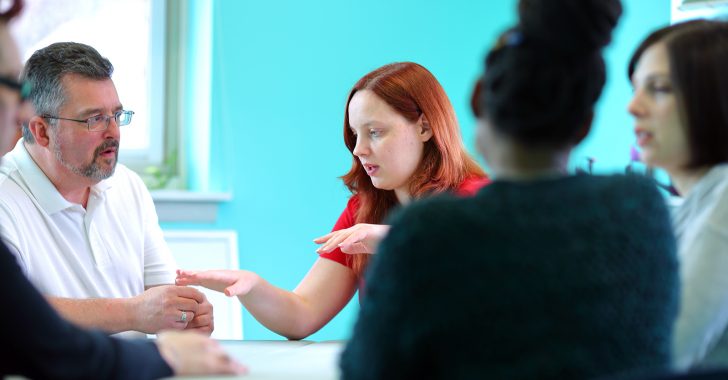How Group Therapy Works
One of the first lifelines for someone in recovery often comes in the form of group therapy. While the idea of opening up about substance use to a group of strangers may sound intimidating at first, the group therapy setting provides easy camaraderie that can help to relieve feelings of isolation.
As participants grow more comfortable with sharing, they typically gain more confidence and self-esteem that can improve their ability to sustain recovery.
In fact, one recent study found that rehabilitation programs like Eagleville’s that provide patients with peer support typically see a “significant reduction of risk of relapse.”
What to Expect
In a group session, a therapist””sometimes multiple therapists””meets as often as five times a week with a small group in which everyone is in recovery.
Sessions are fairly structured. Beyond providing discussion topics, the therapist will also offer feedback and techniques that are intended to help each member gain a better understanding of themselves and continue to make progress with their recovery.
In treating substance use disorder, these five forms of group therapy are common:
- Psychoeducational: Focuses on exploring feelings and managing anger related to conflict and trauma
- Cognitive behavioral: Focuses on identifying triggers and building coping mechanisms for a sustainable recovery
- Skills development: Under the umbrella of cognitive behavioral therapy, this form focuses on life skills and relaxation training
- Support: Focuses on trauma and relapse prevention, typically specific to each gender
- Interpersonal process group psychotherapy: Focuses on examining why we do the things that we do in a number of relevant contexts, including substance use and coping with abuse.
The therapist leading the session plays a large role in fostering a member’s progress toward both ends, but progress also comes from witnessing other group members at various stages in their recoveries. For one, there’s the comfort that comes from knowing that daunting challenges can be overcome.
And there’s the sense of plugging into a community. The more members share their vulnerabilities, the more the group rallies around them. Members can feel bolstered by the support, but they also develop a sense of pride in being a support for someone else.

